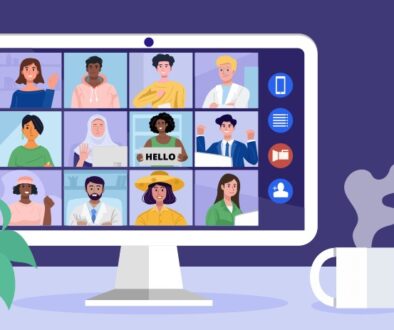How to Stay Secure Online While Going on the Web
Hey there! Ready to dive into the wonderful world of the internet? That’s fantastic! The internet is like a giant playground, full of exciting things to do, see, and learn. But just like in any playground, there are some rules we need to follow to stay safe. Want to become an internet safety superhero? Let’s go!
1. Strong Passwords are Your Superpowers
Imagine if your house key was easy to copy. Scary, right? The same goes for your passwords. A strong password is like a secret key that only you know.
- Use a Mix: Include big letters (A, B, C), small letters (a, b, c), numbers (1, 2, 3), and symbols (!, @, #).
- Be Unique: Don’t use the same password everywhere. If one gets stolen, you don’t want all your doors to be open!
- Keep it Secret: Never share your password, not even with your best friend.
2. Think Before You Click
The internet is full of links, and some are traps set by bad guys. Clicking the wrong link can be like stepping on a Lego brick – painful and problematic.
- Look Carefully: If a link looks weird or someone you don’t know sends it, don’t click.
- Be Suspicious: If something sounds too good to be true (like winning a million dollars), it probably is. Avoid those links!
3. Personal Information is Private
Would you tell a stranger on the street your name, address, and phone number? No way! The same rule applies online.
- Don’t Share Personal Info: Keep your full name, address, phone number, and school name private.
- Use Nicknames: Instead of your real name, use a fun nickname when creating profiles online.
4. Update Your Software
Imagine your superhero suit has a tear. You’d fix it right away, right? The same goes for your computer, tablet, or phone. Updates fix holes that bad guys can use to sneak in.
- Update Regularly: Keep your apps, games, and operating system up to date.
- Automatic Updates: Turn on automatic updates to always stay protected.
5. Use Antivirus Software
Think of antivirus software as a shield that protects your computer from viruses and malware.
- Install It: Make sure you have antivirus software on your computer.
- Keep It Updated: Just like your superhero suit, your shield needs updates to stay strong.
6. Be Careful with Wi-Fi
Public Wi-Fi is like using a public bathroom – you need to be extra careful!
- Avoid Sensitive Activities: Don’t do things like online banking or shopping on public Wi-Fi.
- Use Secure Connections: Look for the padlock symbol in the address bar and URLs that start with “https.”
7. Back Up Your Data
Imagine building a super cool Lego tower and then accidentally knocking it over. You’d want a backup plan, right? The same goes for your data.
- Regular Backups: Save copies of important files on an external hard drive or cloud storage.
- Set Reminders: Schedule regular backups so you don’t forget.
8. Be Social Media Smart
Social media is like a big online party where everyone can see what you’re doing. But you wouldn’t want strangers looking through your photo album, would you?
- Privacy Settings: Adjust your privacy settings so only your friends can see your posts.
- Think Before You Post: Once something is online, it’s hard to take it back. Make sure you’re okay with everyone seeing it.
9. Learn to Spot Scams
Scammers are like tricksters trying to fool you into giving them money or personal information.
- Know the Signs: If someone asks for money or personal info in a weird way, it’s probably a scam.
- Ask for Help: If you’re unsure if something is a scam, ask a parent or a trusted adult.
10. Be Kind Online
The internet is full of real people with real feelings. Treat them with kindness, just like you would in person.
- Think Before You Type: Don’t say anything online that you wouldn’t say face-to-face.
- Stand Up to Bullies: If you see someone being bullied, tell a trusted adult.
11. Use Two-Factor Authentication
Two-factor authentication (2FA) is like having two locks on your door. Even if someone gets one key, they still can’t get in.
- Enable 2FA: Turn on 2FA for your accounts. You’ll need your password and a special code sent to your phone to log in.
12. Secure Your Devices
Just like you wouldn’t leave your house unlocked, don’t leave your devices unsecured.
- Use a Screen Lock: Set a passcode, pattern, or fingerprint lock on your phone and tablet.
- Don’t Share Your Devices: Be careful who you let use your devices.
13. Be Mindful of Downloads
Downloading stuff can be fun, but it’s also a way for bad guys to sneak in.
- Download from Trusted Sources: Only download apps and files from places you trust.
- Scan Downloads: Use your antivirus software to scan files before opening them.
14. Watch Out for Phishing
Phishing is when someone pretends to be someone else to steal your information.
- Check Emails Carefully: If an email looks fishy, don’t click on any links or attachments.
- Verify the Sender: If you’re not sure if an email is real, check with the person or company directly.
15. Know Where to Get Help
Sometimes, even superheroes need help. Know where to turn if something goes wrong online.
- Tell a Trusted Adult: If something online makes you feel uncomfortable, tell a parent, teacher, or another trusted adult.
- Report Problems: Many websites have a way to report bad behavior or security issues. Use them!
16. Stay Informed
The internet is always changing, and so are the tricks that bad guys use.
- Keep Learning: Stay up to date with the latest internet safety tips.
- Share What You Know: Teach your friends and family how to stay safe online too.
17. Use VPNs for Extra Security
A VPN (Virtual Private Network) is like a secret tunnel that hides what you’re doing online.
- Install a VPN: Use a VPN when you’re on public Wi-Fi to keep your data safe.
- Choose a Reputable Service: Pick a trusted VPN provider.
18. Understand Your Digital Footprint
Everything you do online leaves a trail, just like footprints in the sand.
- Think About Your Actions: Before you post or share something, think about how it might affect you later.
- Clean Up Your Footprint: Delete old accounts and posts you don’t need anymore.
19. Use Safe Search Engines
Some search engines are safer than others.
- Kid-Friendly Search Engines: Use search engines designed for kids, like Kiddle or KidzSearch.
- Set Filters: Ask an adult to help set up search filters to keep out inappropriate content.
20. Have Fun and Explore Safely
The internet is an amazing place full of learning and fun. By following these tips, you can enjoy your time online without worry.
- Stay Curious: There’s so much to discover, so keep exploring!
- Be Safe: Always remember your internet safety rules.
Conclusion
Staying safe online is about being smart and cautious. With these tips, you can navigate the internet confidently and have a blast while doing it. So go ahead, become an internet safety superhero, and enjoy your online adventures!



